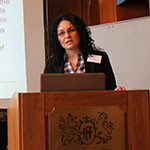Euroacademia Conferences
 Europe Inside-Out: Europe and Europeanness Exposed to Plural Observers (9th Edition) April 24 - 25, 2020
Europe Inside-Out: Europe and Europeanness Exposed to Plural Observers (9th Edition) April 24 - 25, 2020 Identities and Identifications: Politicized Uses of Collective Identities (9th Edition) June 12 - 13, 2020
Identities and Identifications: Politicized Uses of Collective Identities (9th Edition) June 12 - 13, 2020 8th Forum of Critical Studies: Asking Big Questions Again January 24 - 25, 2020
8th Forum of Critical Studies: Asking Big Questions Again January 24 - 25, 2020 Re-Inventing Eastern Europe (7th Edition) December 13 - 14, 2019
Re-Inventing Eastern Europe (7th Edition) December 13 - 14, 2019 The European Union and the Politicization of Europe (8th Edition) October 25 - 26, 2019
The European Union and the Politicization of Europe (8th Edition) October 25 - 26, 2019 Identities and Identifications: Politicized Uses of Collective Identities (8th Edition) June 28 - 29, 2019
Identities and Identifications: Politicized Uses of Collective Identities (8th Edition) June 28 - 29, 2019 The European Union and the Politicization of Europe (7th Edition) January 25 - 26, 2019
The European Union and the Politicization of Europe (7th Edition) January 25 - 26, 2019 7th Forum of Critical Studies: Asking Big Questions Again November 23 - 24, 2018
7th Forum of Critical Studies: Asking Big Questions Again November 23 - 24, 2018 Europe Inside-Out: Europe and Europeanness Exposed to Plural Observers (8th Edition) September 28 - 30, 2018
Europe Inside-Out: Europe and Europeanness Exposed to Plural Observers (8th Edition) September 28 - 30, 2018 Identities and Identifications: Politicized Uses of Collective Identities (7th Edition) June 14 - 15, 2018
Identities and Identifications: Politicized Uses of Collective Identities (7th Edition) June 14 - 15, 2018
“Who Could Challenge Democracy? ” The Law on Religious Freedom – An Expression of Romanian Democracy?
-
-

-
Presentation speakers
- Natalia Vlas, Centre for Political Analysis, Babes-Bolyai University, Cluj-Napoca, Romania
- Download presentation
Abstract:
The proposed paper aims to analyze the place of religion in Romanian society and politics, by focusing specifically on the process of readjusting religious freedom in Romania after 1990. Although the regulation of religious life in accordance with international human rights principles was considered one of the cornerstones of the Romanian democracy, the replacement of the communist legal framework with a new one took more than 17 years and numerous tensions among the religious actors themselves, the state’s institutions and civil society organizations.
The analysis of the state of religious freedom two decades after the fall of the communism in Romania reveals ambivalent developments. Despite some undeniable signs of progress, significant areas of improvement still remain. The most problematic aspects are the maintanence of the two-tier system and the financial dependence of the culte on the state. By making a distinction between the privileged recognized culte and other religious actors, by deciding which religious actor fits into each one of these categories and by offering its financial support and fiscal exemptions on this basis, the state actually represents the supreme instance in religious affairs, religious actors becoming anexes to state apparatus. On the other hand, by becoming dependant „partners” with the state, religious actors lacks the autonomy they need to become part of a strong civil society that is able to sustain a strong democracy and to oppose illegitimate political power. The long tradition of close ties with the state along with its dependence on the secular power, kept the Orthodox Church, for instance, from opposing the communist state, by providing instead the basis for the submission of the church and for its cooperation with the state. As the paper will prove, the new law on religious freedom in Romania has done little to change the old patterns, and it has mainly sanctified the already existing state of affairs.
-
Related Presentations


















